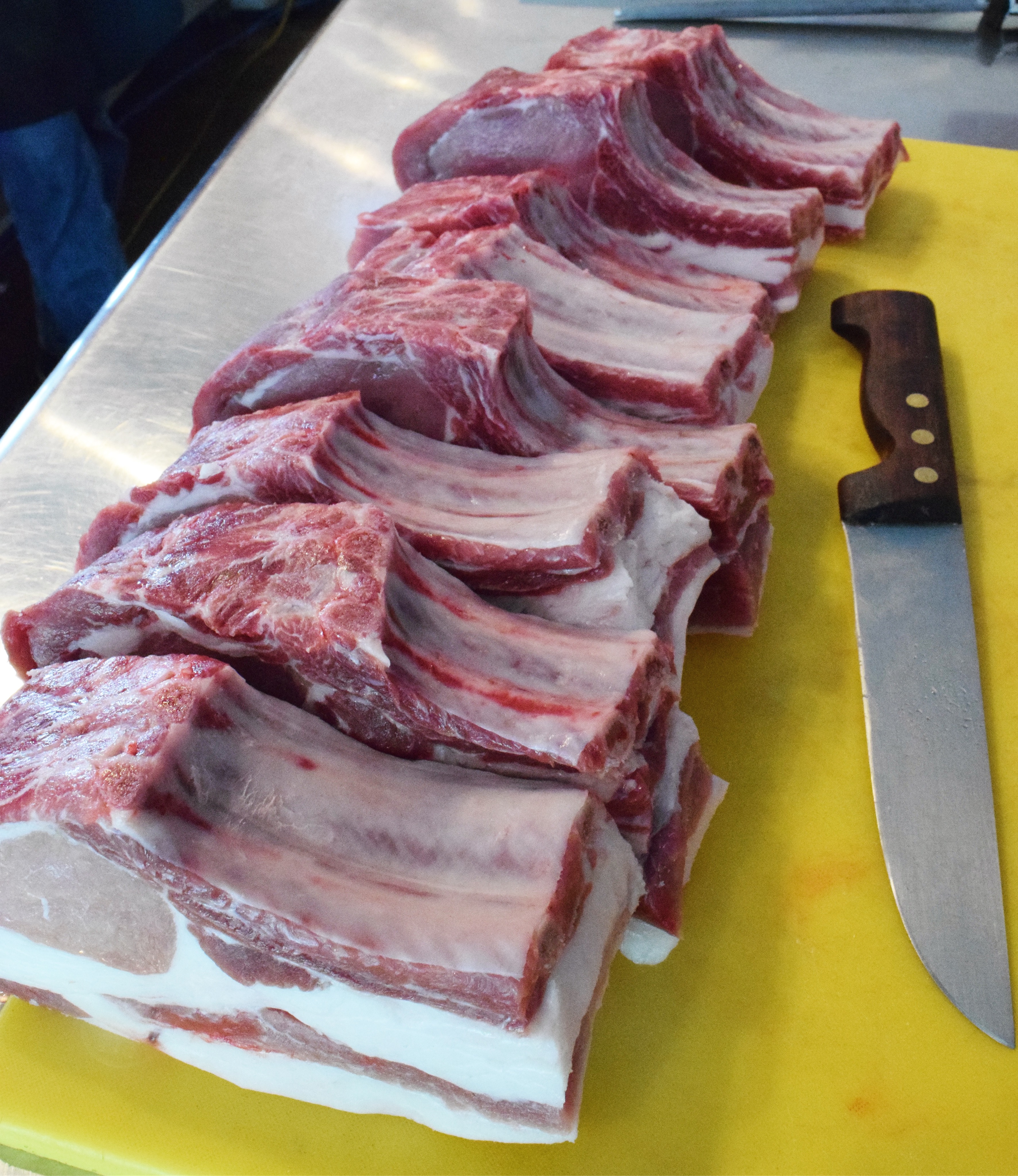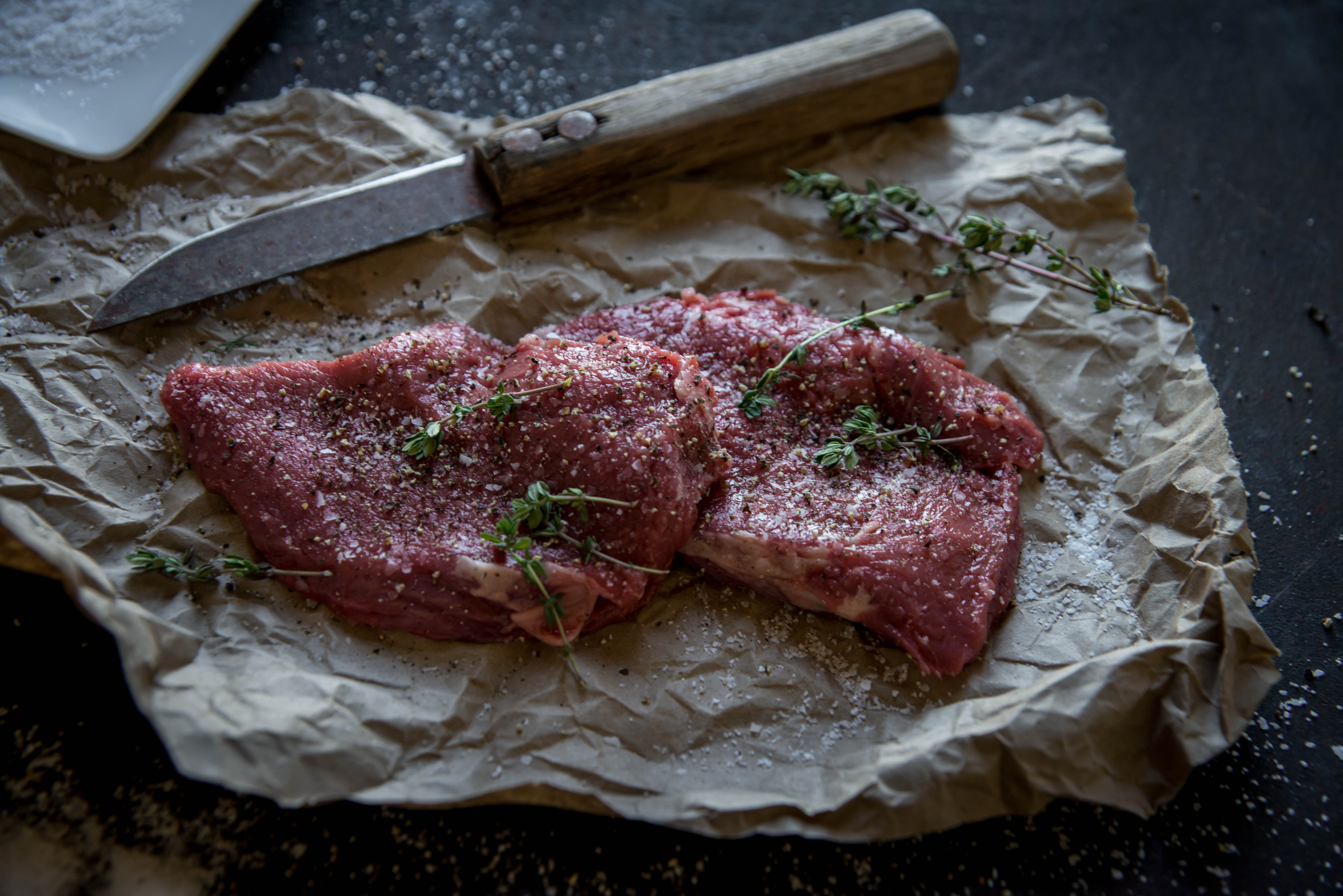Butchers and butcher shops have been around for centuries. There was a time when, unless you raised your own meat, it was customary for folks to visit their local butcher shop more than once a week to pick up something fresh to cook for supper. But much like industrial agriculture replaced the old ways of sustainable farming, grocery stores began to slowly overshadow the smaller, “mom and pop” butcher shops and markets in the 1930s. Advancements in refrigeration, paired with the uprising of nationally branded packaged foods, led way to the phenomenon of the supermarket; where everything is not only cheaper, but it’s all under one roof.
Alright, so what’s the big deal? You may ask. What’s wrong with convenience?
Nothing is inherently wrong with convenience. The problem, rather, lies in what is lost when convenience has more value than where our food comes from and how it gets to customers. We live in a day and age in which knowledgeable, customer oriented, expertly trained butchers have been replaced with self-service aisles and cashiers; where the questions we should be asking go unanswered, like:
• Where was this protein raised?
• Where and how was it slaughtered and processed?
• When was it slaughtered?
• What types of chemicals were used, that I will now be ingesting into my body?
• How many times has it been frozen, thawed, and then re-frozen before it made it to this shelf?
So, where do we go from here?

Back to the butcher shop! Much like the “back to the land” movement that has been going on for the past decade or so, whole animal, sustainably minded butcher shops are making a comeback. The almost extinct trade of butchery is having its own little revival. Lodged somewhere between the farm and the culinary world, butchers are a crucial part of the revitalization of our food system. The farm is just one piece of the grand puzzle. Once the meat has been raised, it must also be slaughtered with care, butchered with precision and then sold with the whole animal in mind. Sustainability does not begin and end at the farm.
For example, the mission at Pasture butcher shop and restaurant in Lancaster, Kentucky is to fully bridge the gap between the farm and the consumer. Traceability is a key component to combating doubt and concern, and to gaining trust amidst a food system wherein nobody knows what to believe anymore. Even more than the run of the mill, whole animal butcher shop equipped provide traceability and transparency, Pasture butchers are able to take it a step further. They not only explain the “who”, “where” and “how” of the farming process, but also point to the processing facility directly behind the Pasture butcher shop to display when it was slaughtered, who it was slaughtered by, how long it hung and when it was packaged.

The other side of coin at Pasture is the butcher shop experience. A butcher shop should be a place where knowledge can be transferred from the professional to the layman. Visiting your butcher was once a time honored tradition, and now the process of interacting with a meat expert can be intimidating to some. Butchers are experts on all things meat, and are a category of professionals composed of passionate folk who want to educate our customers through their food. While the stereotype exudes an image of bruteness, often depicted as large, blood stained men with cleavers hacking away at some slab of meat, the reality is quite the contrary. Trained butchers rely on finesse just as much, if not more, than they depend on strength. They know what a healthy, well raised animal looks like, and how to humanely and properly slaughter it, for both the sake of the animal and for the benefit of the quality of meat. And butchers are experts who can (and love to) offer advice and guidance on how each cut of the animal should be cooked.
The Two Golden Rules when visiting your local butcher shop:
1. Ask Questions.
2. Have an Open Mind.
So, next time you’re trying to figure out what to cook yourself and your family for supper – or you’re really trying to knock the socks off of your guests – take the time to seek out your local butcher shop. You will leave with meat you can be excited about buying, and even prouder to feed to your family.
Want more information? Sign up for our newsletter at the top of this page, or follow us on social media for updates.

